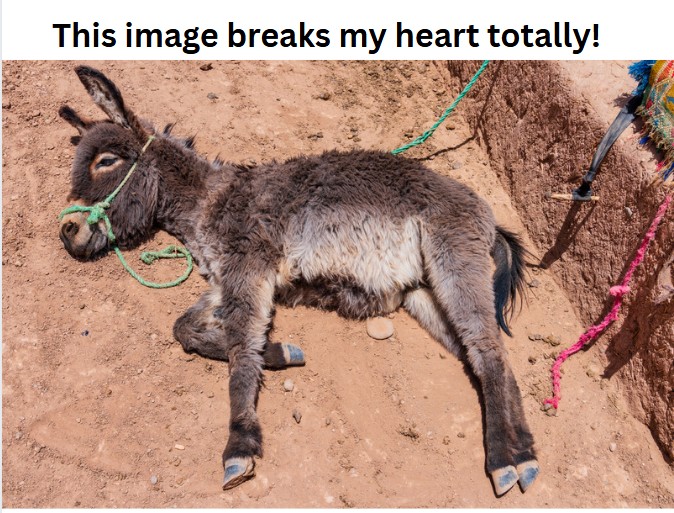My Donkey is Laying Down a Lot
The inside why a donkey is laying down a lot
Angela
4/22/20252 min read
When You Should Be Concerned
While some lying down is completely normal, excessive or prolonged periods on the ground can indicate a problem. Keep an eye out for these warning signs:
Lying down more than usual or refusing to get up
Difficulty rising or obvious discomfort when standing
Lack of interest in food or water
Rolling, pawing, or looking at their belly
Isolation from other animals or sudden changes in behavior
These could be symptoms of common donkey health issues, such as:
1. Hoof Pain or Laminitis
Donkeys are particularly prone to laminitis, a painful condition affecting the hooves. It can be caused by obesity, rich grass, or an underlying metabolic issue. If standing is painful, your donkey may choose to lie down more to relieve pressure.
2. Colic or Digestive Issues
Just like horses, donkeys can suffer from colic. A donkey in pain might lie down, roll, or show signs of distress. Unlike horses, donkeys tend to mask pain, so any unusual behavior should be taken seriously.
3. Arthritis or Joint Stiffness
Older donkeys often develop arthritis, making movement uncomfortable. Cold or damp weather can make symptoms worse, leading to increased lying down.
4. Obesity or Poor Fitness
An overweight donkey may have trouble standing for long periods. Excess weight puts stress on their joints and hooves, leading to discomfort.
5. Depression or Boredom
Donkeys are social, intelligent animals. A lack of stimulation, isolation, or the loss of a companion can lead to depression. In some cases, a withdrawn donkey may lie down more simply due to a lack of motivation.
What You Can Do
Start by observing your donkey closely. How often do they lie down? Are they alert and content when they’re up? Do they show signs of pain, stiffness, or disinterest in food?
If you notice any concerning patterns, don’t wait—call your vet. It’s always better to be cautious, especially since donkeys can be stoic and hide discomfort well.
In the meantime:
Ensure your donkey has comfortable bedding in their shelter
Keep hooves regularly trimmed and monitor for signs of laminitis
Provide a balanced diet and limit access to rich pasture
Offer companionship and mental stimulation
Watch for seasonal changes in behavior related to weather or grazing
Final Thoughts
A donkey lying down now and then is perfectly normal. But if it’s happening frequently or if something just feels “off,” trust your instincts. You know your donkey better than anyone else.
Getting ahead of potential health issues can mean a faster recovery—and peace of mind for you as a caring owner.
Your donkey’s comfort and well-being are worth keeping a close eye on.


